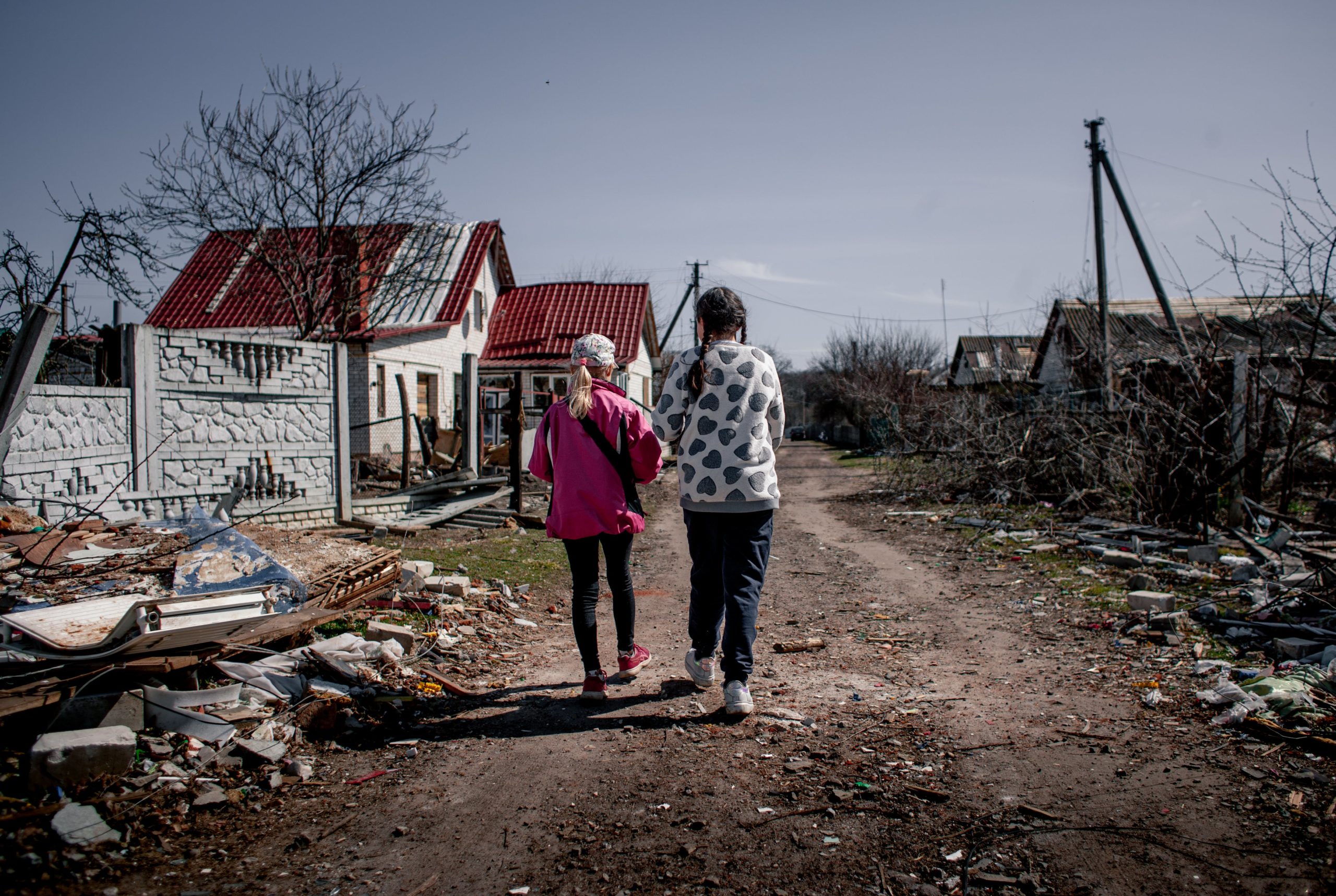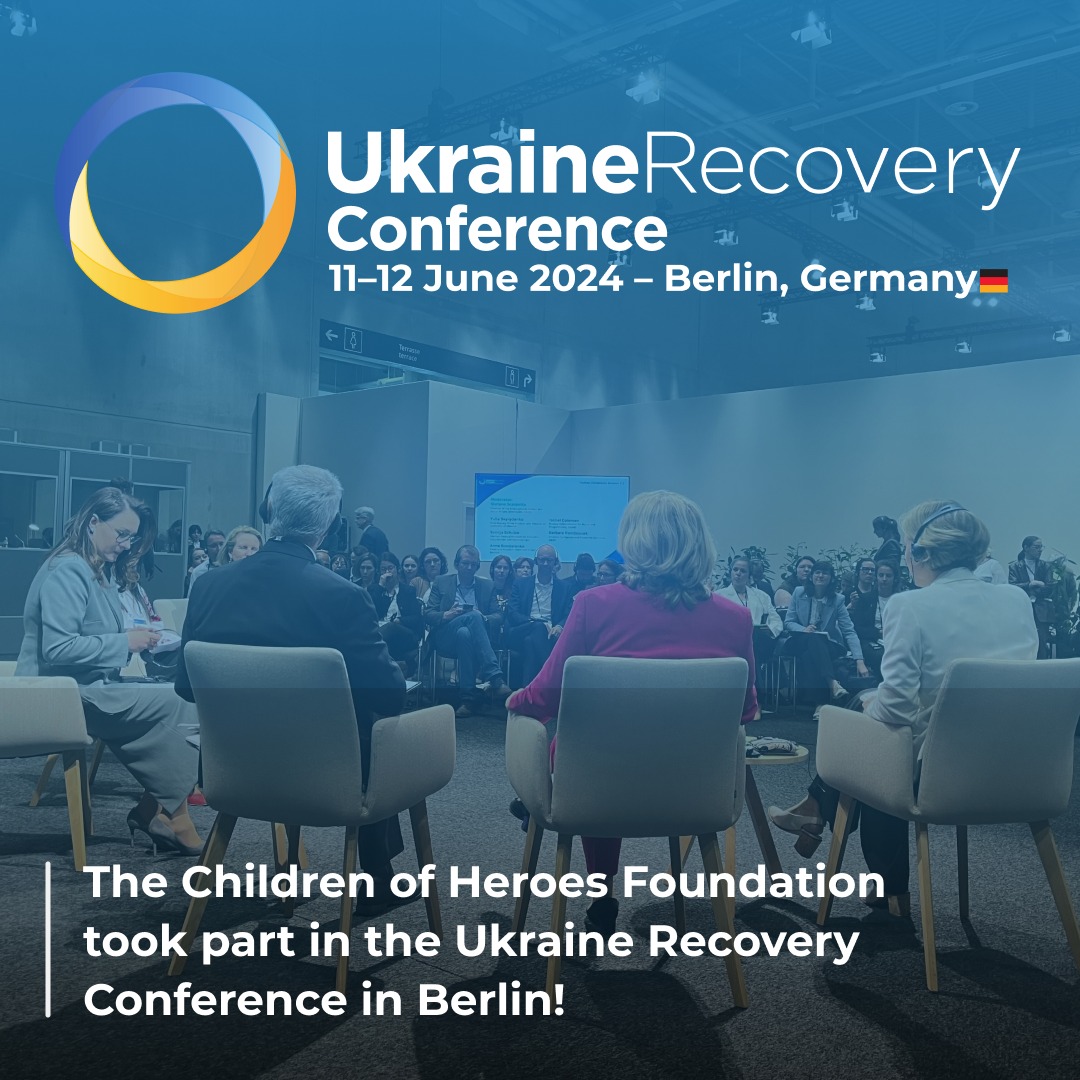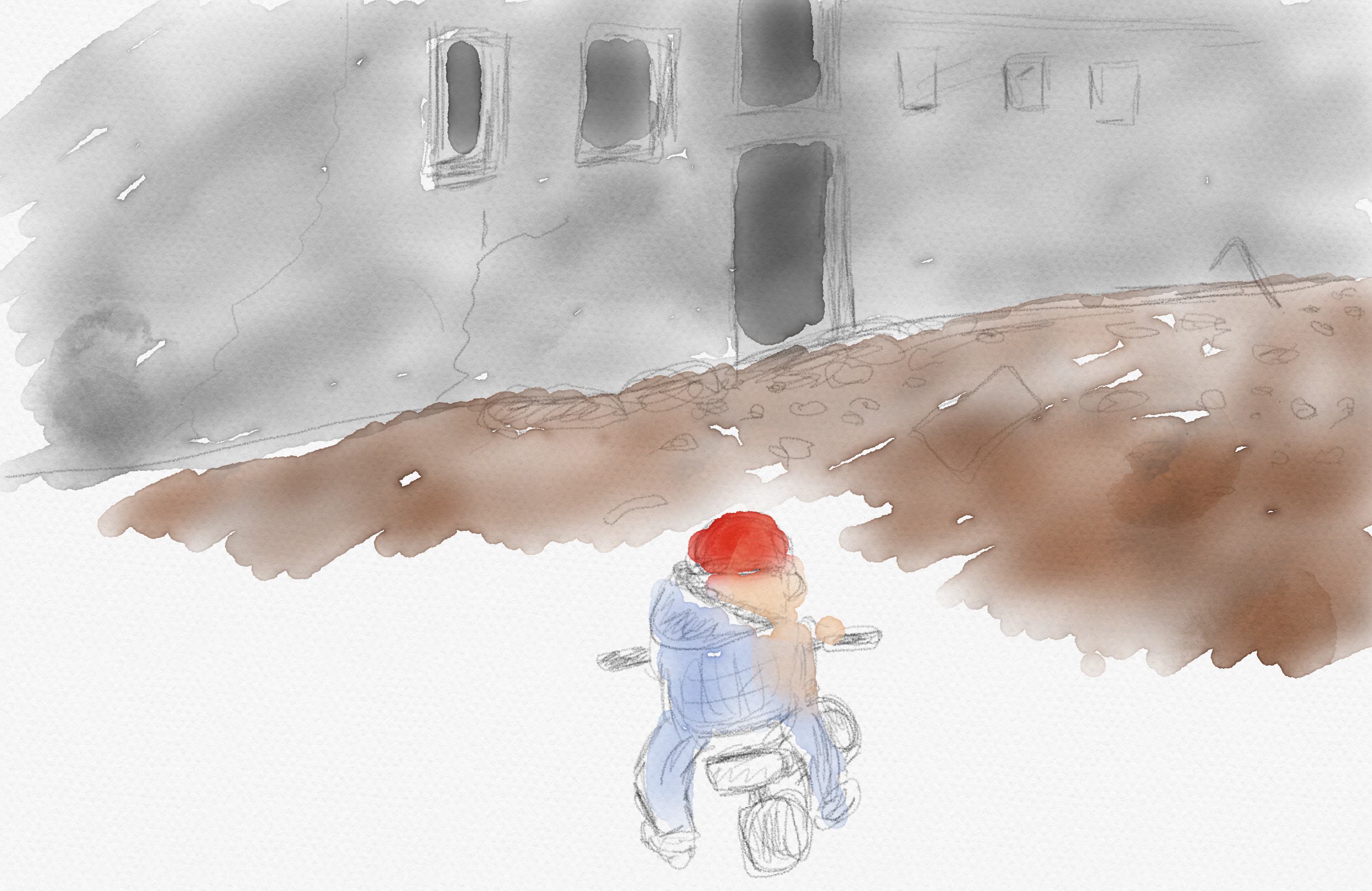Two years on, what are the needs of Ukraine's children and families?
In advance of 24 February which marks the second anniversary of Russia’s full-scale invasion, we asked Eurochild members in Ukraine to tell us what their priorities for the wellbeing of children are.
“We are very proud of the vital work Ukrainian members are carrying out to ensure children can exercise their rights in these difficult times of war. Eurochild members continue to demonstrate (the good practices) where further EU funding should be directed” says Sabine Saliba, Eurochild Secretary General.
Fighting war trauma
In the past two years, 528 children have been killed, 1,225 have been wounded, and nearly 20,000 have been unlawfully deported to the Russian Federation. Hundreds of thousands of children are facing rocket attacks daily; some children have permanently left the war zone and moved to other countries, where they are compelled to live without their fathers — who defend our country (Ukraine) on the front line.
The war continues and enduring it without any support or guidance is difficult. That’s why the “Voices of Children” Charitable Foundation remains committed to providing systematic assistance. Over 100 psychologists work tirelessly both offline and online, offering individual and group psychological support to children and parents. We also train and empower professionals in this field. In our long-term plans, we aim to establish a rehabilitation centre near Kyiv, where we can simultaneously accommodate up to a hundred children to aid them through various programmes.
We recognise that the aftermath of war will have enduring and for many, devastating effects. However, research conducted by experts and scientists highlights the extraordinary resilience of children’s minds and emotions. With timely and professional support in a nurturing environment, the children can have the chance to lead fulfilling lives, unburdened by the anxieties of war. Each day, we strive to fulfil our mission: ensuring that no child bears the burden of war trauma alone.
Read more updates from Voices of Children Foundation
Dealing with emergencies and humanitarian action without compromising social progress in the long run
In the modern world, it is difficult to comprehend how war can unfold in 21st-century Europe with violations of international humanitarian law, human rights, against values for which our societies have already paid dearly in its history. Speaking about Ukraine, it is important to acknowledge the following: war affects all aspects of life, but not all life is war.
Thus, not all work is war-focused. For example, in my activities, I provide legal consultations to children and, in some matters, their legal representatives. The full-scale war has led to an increase in requests related to the challenges of war (documents for IDPs, crossing borders regulations under the martial law, etc.). But not all requests are war-related: people have lives, rights, and issues related to "regular issues" like access to education, social services, and other opportunities.
However, war takes away many resources (human, financial, etc.), obstructing the progress that would have been achieved in peacetime, particularly in the areas of inclusion, legal awareness, and other developments of communities, countries, and regions.
Therefore, during a period of war escalation, it is especially important to support all spheres that may be related or not directly related to military or humanitarian action.
Read more updates by Polina Klykova
Responding to a huge increase in the need for quality social services
The development of professional competencies is our main priority. Since the beginning of the war, we have realised the need to develop the professional competencies of specialists in the social field to work with children and families in war and post-war conditions, as well as to prevent burnout and secondary traumatic stress. During the war, specialists face new challenges and difficulties, so training is a solution that will help resolve these challenges. We regularly conduct needs assessments to identify the most relevant topics for the training we provide. Since the beginning of the war, we have conducted 106 training activities for 1,484 people.
In times of war, quality online training is becoming more important than ever. To ensure accessibility of training, we have created the BeProfi online training platform, where child welfare workers and professionals can be trained from their devices online, in a safe environment and at a time convenient for them. Currently, 5 online courses are available on the Beprofi platform.
Helping children who have been separated from their families
The scale of displacement is immense; of the 4 million displaced people receiving temporary protection in the European Union, 1.3 million are children. There have been documented cases where, despite the presence of Ukrainian guardians and a prohibition on international adoption during the war, European families still attempted to proceed with the adoption procedure for Ukrainian children. Data from Member States are not always disaggregated by age and sex, making it difficult to assess the different risks and protection needs for various age groups, especially for girls.
Supporting children with disabilities poses significant challenges, particularly concerning the acceptance of disability documentation from Ukraine, which limits the support available to them. Some Member States have implemented targeted support programmes; however, Member States must ensure that the specific needs for accessibility, inclusion, and additional support are adequately addressed. Many of these children are left without educational services, significantly deteriorating their physical and psychological well-being.
Children evacuated from Ukrainian institutions were often housed in large or inadequate facilities, as part of urgent and crisis-response measures. These arrangements were made without sufficient prior preparation or consideration for the individual needs of each child as force-majeure measures. However, despite the passage of two years, the situation for these children remains largely unchanged, some institutions still remain. In several European countries, including Italy and Germany, Ukrainian children face significant challenges in returning to their home country. Currently, there are instances where Ukrainian children are residing in temporary childcare and foster care facilities, with legal processes underway regarding their repatriation.
Read the full update by the Ukrainian Child Rights Network (PDF)
Photo by Алесь Усцінаў




